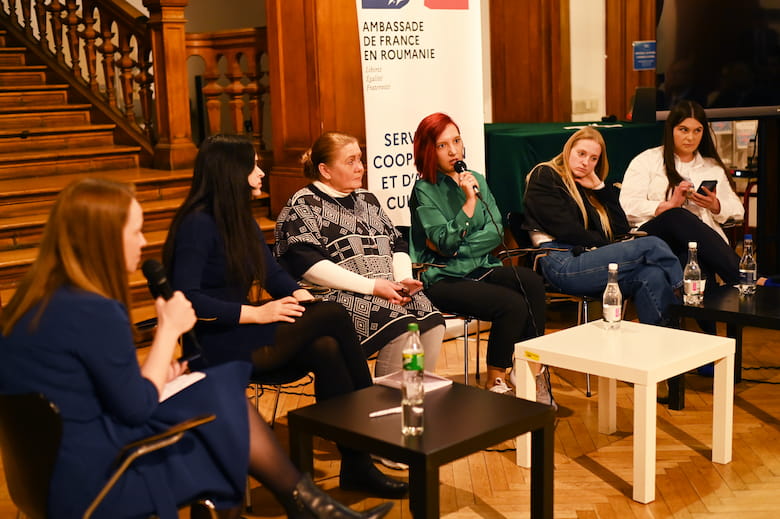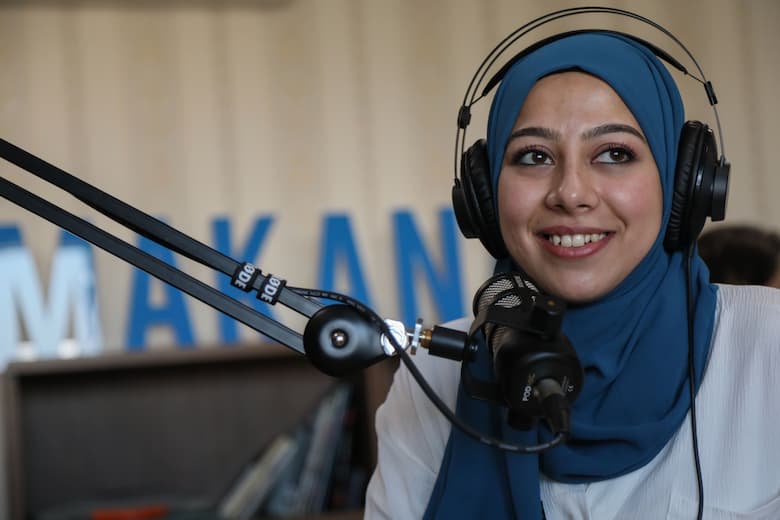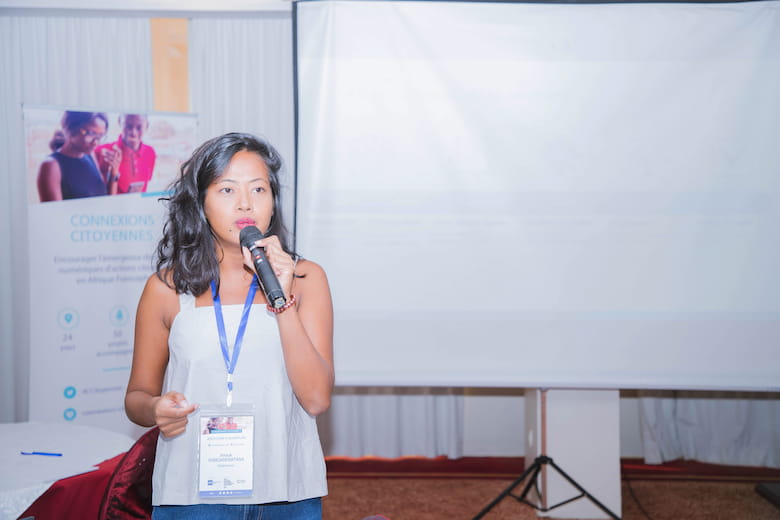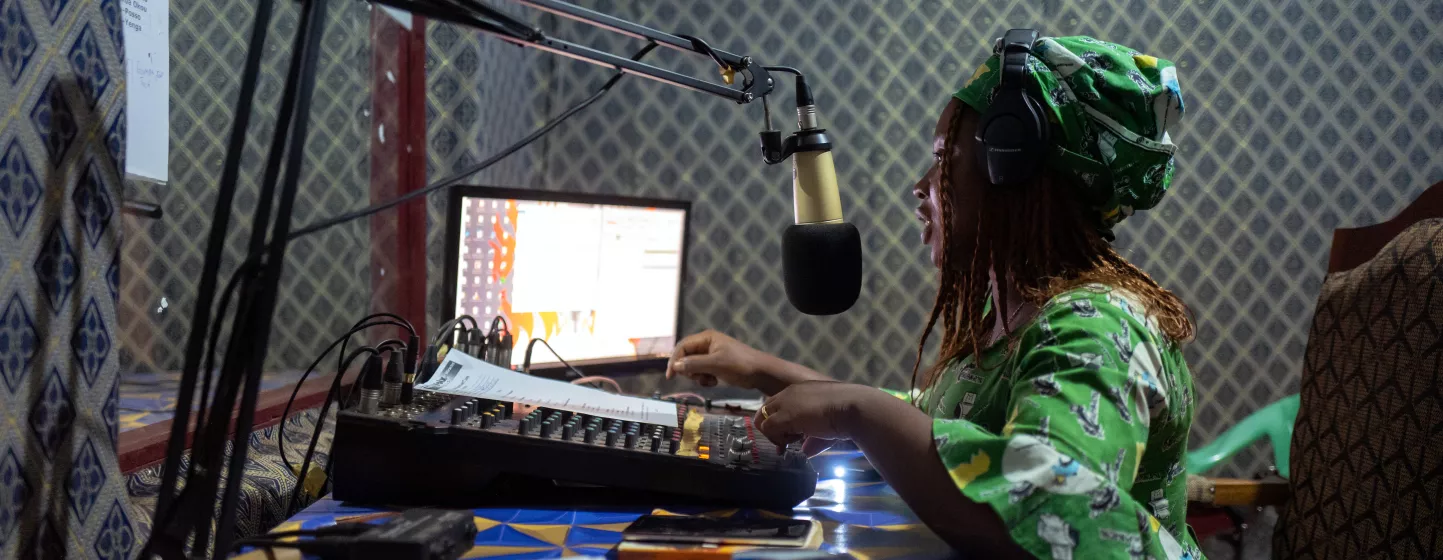Sa mission
Partout dans le monde, CFI accompagne journalistes, médias et membres de la société civile pour permettre aux populations d’être les mieux informées possible.
Au cœur de notre action : la lutte contre la désinformation, la défense de l’égalité entre les femmes et les hommes, la protection de l’environnement et la promotion de la démocratie et de l’engagement citoyen.
Lutter contre la désinformation
Les infox posent des défis mondiaux sans précédent pour l’accès des populations à une information fiable et de qualité. Depuis une dizaine d’années, ces informations mensongères, délibérément biaisées ou tronquées dans le but d’influencer l’opinion publique, circulent massivement sur internet, et en particulier sur les réseaux sociaux. Elles sont considérées comme un facteur majeur d’instabilité et de désordre social dans un nombre croissant de pays.

À travers ses projets menés principalement en Afrique et dans le monde arabe, mais également dans les Balkans, en Ukraine et en Asie du Sud-Est, CFI participe activement à la lutte contre la diffusion d’informations fausses ou erronées.
Les projets accompagnés portent sur la formation des journalistes au fact-checking (méthode de vérification des informations), la mise en réseau de professionnel·les de l’information, l’accompagnement à la création de rubriques consacrées à la vérification des faits, etc.
> Découvrez tous les projets de lutte contre la désinformation
Promouvoir l’égalité entre les femmes et les hommes
Au regard du rôle fondamental que jouent les médias dans la transmission des valeurs et la représentation des identités, CFI a choisi de faire de l’égalité entre les femmes et les hommes une priorité.

Pour ce faire, l'agence forme les directeurs et directrices de médias à un management non-sexiste et inclusif, déploie des actions de sensibilisation au sein des rédactions et aide à produire des contenus en lien avec les enjeux de genre.
L’agence participe ainsi à l’amélioration de la place des femmes dans les débats politiques, économiques et au sein des médias.
> Découvrez tous les projets visant à promouvoir l’égalité entre les femmes et les hommes
Protéger l’environnement
Face à l’urgence climatique et à ses conséquences irréversibles sur notre planète, CFI sensibilise les journalistes à leur rôle de lanceurs et lanceuses d’alerte.
Pour cela, l’agence les forme au journalisme scientifique et environnemental, soutient la production de documentaires et de contenus numériques et intervient auprès des responsables d’écoles de journalisme pour les sensibiliser à la nécessité de créer des modules dédiés à ce sujet dans leurs établissements. Elle met également en contact les médias avec l’ensemble des acteurs et actrices engagées dans la lutte contre le dérèglement climatique : monde scientifique, société civile, communautés locales impactées, organismes publics...
CFI organise également des rencontres ouvertes à toutes et à tous, encourageant ainsi les populations à prendre une part active aux débats liés à la protection de l’environnement.
> Découvrez tous les projets de protection de l’environnement
Promouvoir la démocratie et l’engagement citoyen
Essentiels à la vie politique et sociale d’un État ou d’une région, les médias libres et indépendants sont des outils au service des populations. Ils permettent à chaque citoyen et citoyenne d’avoir un regard éclairé, et à la société de créer plus facilement des liens entre les communautés, les groupes sociaux et les différentes générations.
Convaincues que les médias jouent un rôle essentiel dans la valorisation de la citoyenneté et des droits humains, les équipes de CFI déploient des projets en faveur des valeurs démocratiques.

Adaptés au contexte politico-social des zones géographiques dans lesquelles l’agence intervient, ces projets sont de plusieurs types : lancement d’études ; organisation de rencontres entre professionnel·les de l’information ; organisation de débats publics entre citoyen•nes, médias et autorités ; appui à la production de contenus journalistiques couvrant les droits humains ; aide à la production de magazines de sensibilisation, etc.
Brochure / Agir pour une information vérifiable
Brochure / Agir pour une presse plurielle
Brochure / Agir pour une conscience écologique
Brochure / Agir pour un monde citoyen
